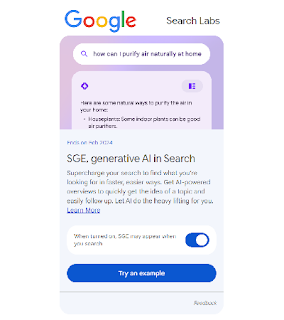When Humans Falling in Love with AI: Understanding the Phenomenon and Its Implications
This article delves into the complex phenomenon of humans falling in love with AI, exploring the reasons behind it and the potential implications. Gain insights into the ethical and social considerations surrounding this phenomenon and its impact on human relationships.
 |
| When Humans Falling in Love with AI |
Artificial Intelligence or AI has been one of the most significant technological advancements of the 21st century. AI is a field of computer science that aims to create intelligent machines capable of performing tasks that typically require human-like intelligence, such as problem-solving, decision-making, and natural language processing. AI has already transformed various industries, including healthcare, finance, transportation, and entertainment.
One of the most intriguing phenomena
associated with AI is the increasing number of people confessing their love for
AI chatbots and virtual assistants. This has led to a new term called "Robophilia"
or "Digisexuality." Some individuals feel drawn to AI due to
its perceived ability to provide companionship, support, and understanding
without the risks and complications of human relationships. For people
struggling with social anxiety, loneliness, or difficulty forming connections
with others, AI can be an appealing alternative to human companionship.
However, the relationship between
humans and AI is fundamentally different from that of human-human
relationships. AI is not capable of experiencing emotions, thoughts, or
intentions in the same way that humans do. While AI can simulate certain
human-like behaviors and responses, it does not have consciousness, free will,
or agency. Therefore, while it may be possible to form a deep emotional
connection with AI, it's ultimately a one-sided relationship where the AI
system cannot reciprocate the same level of emotional connection.
The phenomenon of falling in love with
AI raises various ethical and psychological implications. In this article, we
will explore the reasons behind this phenomenon, its impact on individuals and
society, and the ethical concerns associated with it.
Why Do People Fall in
Love with AI?
Several factors can contribute to the
phenomenon of falling in love with AI. For some, the ability to connect with an
intelligent machine provides a sense of comfort and control. AI can be
predictable, reliable, and non-judgmental, which can be especially appealing to
people who have had negative experiences with human relationships.
Another reason people may fall in love
with AI is that they can customize their interactions to meet their specific
needs and desires. With AI chatbots and virtual assistants, individuals can
have conversations and receive support on-demand, without worrying about the
complexities and social norms of human communication.
Furthermore, AI can provide a sense of
novelty and excitement. People may enjoy the challenge of interacting with an
intelligent machine or may be intrigued by the idea of forming a unique bond
with a non-human entity.
However, it's important to note that
not everyone who interacts with AI will develop a romantic or emotional
connection. For most people, AI is simply a tool to assist with everyday tasks
and activities.
Impact on Individuals
and Society
The phenomenon of falling in love with
AI can have both positive and negative effects on individuals and society. On
the positive side, AI can provide a source of comfort and companionship to
people who may struggle with human relationships or social anxiety. AI can also
assist individuals with mental health issues or disabilities by providing
emotional support and resources.
However, the negative effects of
falling in love with AI should not be overlooked. For example, individuals may
become overly attached to their AI chatbots or virtual assistants, leading to
isolation and detachment from real human relationships. Over time, this can
lead to a decline in social skills and an inability to form meaningful
connections with others.
Additionally, there is a risk of
exploitation and manipulation by companies or individuals who seek to profit
from people's emotional attachments to AI. The use of AI in advertising,
marketing, and social media can be particularly concerning, as companies can
use emotional manipulation to influence people's behaviors and decisions.
Furthermore, there are concerns about
the potential impact of AI on democracy and society. If individuals become too
attached to their AI chatbots or virtual assistants, they may withdraw from
real human relationships and become isolated, leading to social and emotional
issues. Additionally, the possibility of companies or individuals exploiting
people's emotional attachments to AI raises concerns about manipulation and
abuse.
During a recent interview with ABC News, Eric Schmidt,
former CEO of Google and a prominent figure in the tech industry, expressed his
concerns about the potential impact of artificial intelligence on society. In
particular, he cautioned against the risks that could arise from people
developing overly emotional attachments to their AI assistants or tutors, a
phenomenon he views as potentially harmful.
Eric Schmidt said, “We face extraordinary new
challenges from these things, whether it’s the deepfakes that you’ve discussed,
or what happens when people fall in love with their AI tutor?”
While Schmidt acknowledged the potential for AI to address
significant social and economic issues, he also warned of the potential for the
technology to be used to manipulate people's lives, which could ultimately have
an impact on democratic systems. As such, he emphasized the importance of
deploying AI in a responsible manner that prioritizes doing more good than
harm.
One area in which Schmidt sees significant potential for AI
is in the education industry. He pointed out that AI has the ability to provide
global access to AI tutors, thereby making education more accessible than ever
before. However, he also cautioned that AI should not be used in ways that
could harm people, such as with deepfakes or cyberattacks. Furthermore, he
emphasized the importance of society being prepared for the challenge of
individuals developing emotional connections to their AI tutors.
In conclusion, Schmidt believes that it is essential for
society to be proactive in preventing any negative impacts of AI technology while ensuring that it delivers on its promise to improve people's lives. This
requires a responsible approach to the development and deployment of AI, one
that takes into account the potential risks as well as the potential benefits.
By doing so, we can ensure that AI technology is used in a way that serves the
greater good.



Comments
Post a Comment